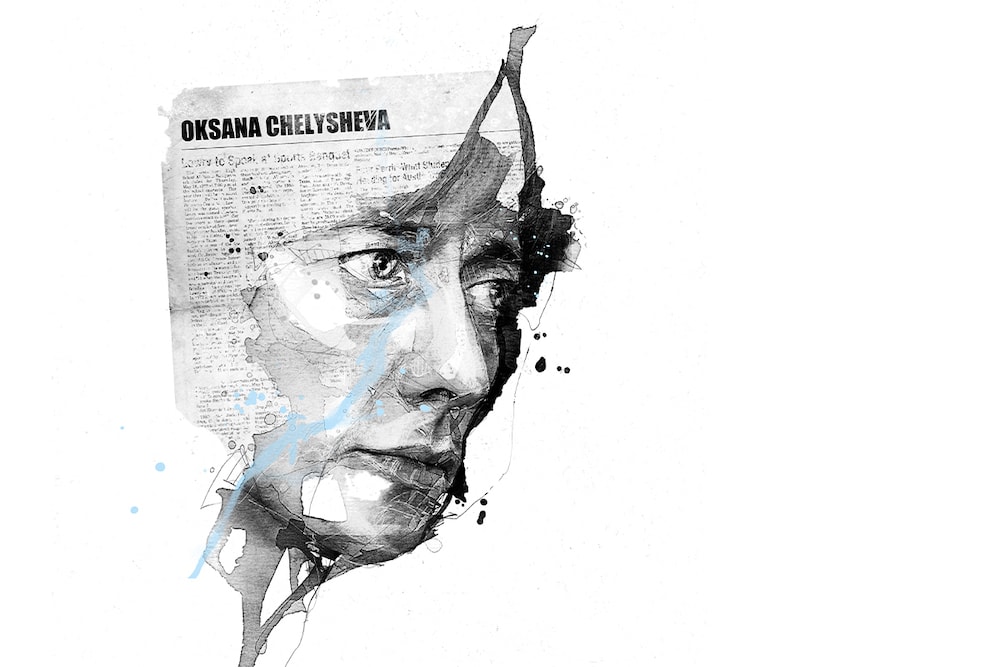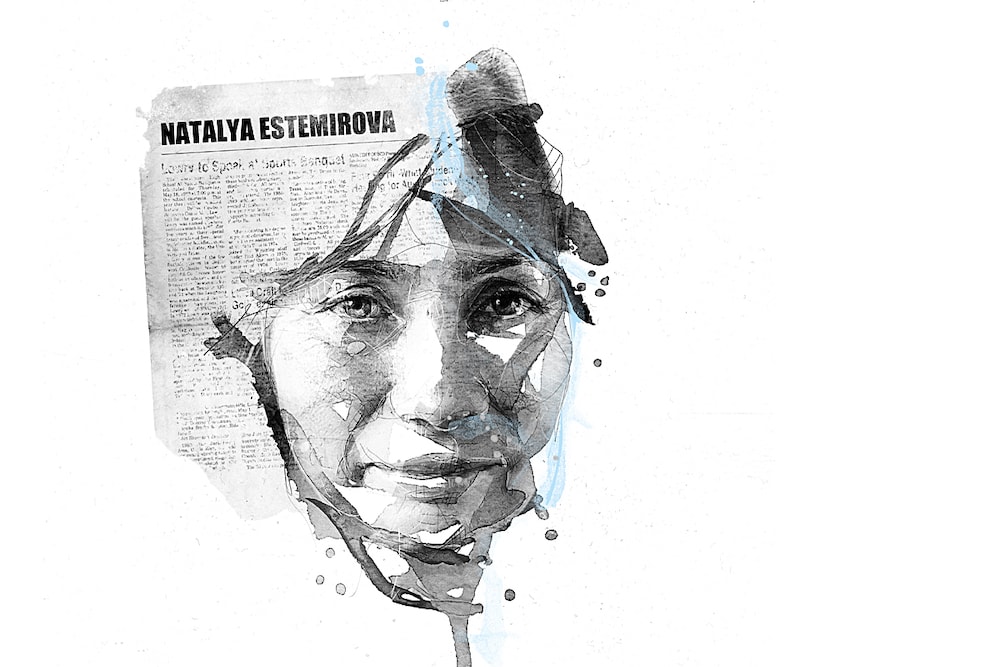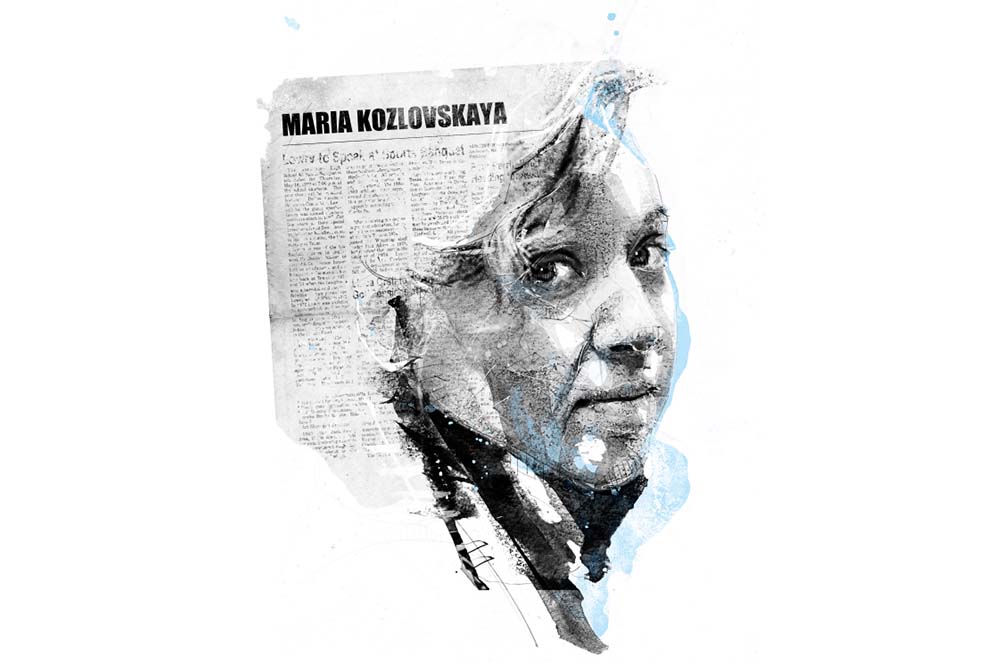Journalist and human rights activist Oksana Chelysheva has both defied death threats and prosecution to campaign for peace and justice in the Russian-speaking world.
What before were extrajudicial ways of dealing with critical voices have now been turned into laws.
On 1 September 2004, a group of Chechen separatists stormed Middle School No. 1 in Beslan, a small town in North Ossetia, Russia; they took around 1,100 people hostage. The crisis lasted three days and was brought to a brutal end by Russian security forces who assaulted the school using tanks, incendiary rockets and other battle-field weapons. It was a bloodbath: over 330 people were killed, including an estimated 187 children. The bereaved parents’ fury at the authorities’ reckless tactics was exacerbated by the subsequent, deeply-flawed official investigation into the event, which left a myriad of controversies unexamined. And – such is the upside-down nature of justice in Russia – grieving mothers who accused the authorities of sharing responsibility for the disaster were detained or put on trial.
Beslan changed the lives of all Russians; not just because of the national pain it caused, but because President Putin exploited the tragedy to consolidate presidential power, introducing laws that pushed Russia further down the road to authoritarianism.
For the journalist Oksana Chelysheva, the tragedy had a very specific impact: it turned her from being a straightforward journalist into a journalist-activist. “If I had not done something to save the hostages,” she said in a 2012 interview, “I would [have] quit my work as a journalist, because I would not be able to sleep peacefully knowing there was one chance to save [these] people.” During the stand-off between the hostage-takers and the authorities, Chelysheva had tried to broker peace talks by interviewing leading Chechen separatists (who were not involved in the hostage situation) and publishing their condemnations of terrorism. But to no avail: the Russian authorities had no appetite for negotiation.
Beslan was one of the many atrocities that took place during the second Chechen war (1999-2009): a report by Amnesty International cited indiscriminate bombing of civilians by Russian forces, and hundreds of extrajudicial killings by both Russians and Chechen separatists. Over 50 mass graves have been discovered.
Russian journalists who dared to accurately report what was happening in Chechnya earned the ire of the authorities and their henchmen; Chelysheva’s friend and fellow journalist, Anna Politkovskaya, paid the ultimate price for exposing Russia’s dirty war. Chelysheva too made enemies in high places, and her even-handed approach to the conflict (for which she received Amnesty International’s Journalism Under Threat Award), and her fierce criticism of Putin, did not go unpunished: in 2007, the Russian authorities shut down the Russian-Chechen Friendship Society (RCFS), an independent journalism organisation of which Chelysheva was deputy chair; in 2012, the authorities tried to ban a book about the conflict’s human rights abuses that Chelysheva had co-authored, accusing her of “extremism.” But most disturbing of all were the death threats.
Chelysheva began receiving death threats when she was working at RCFS, and they have continued ever since. She is a resolute, courageous character, so at first she brushed off the menacing telephone calls as something that went with the territory. But as the atmosphere in Putin’s Russia turned increasingly intolerant and nationalistic (fuelled in part by a raft of draconian new laws curbing free expression), she began to take the threats more seriously. At times she was followed and, in 2013, a Facebook page appeared called ‘The Hunt for Oksana Chelysheva’, on which numerous death threats were posted, and, most chillingly, attempts to locate her. Fearing for her life, Chelysheva fled Russia.
But she continued her work. In 2012, a several-thousand-strong anti-Putin protest in Moscow’s Bolotnaya Square erupted into violence when dozens of the protesters clashed with police. The Russian authorities reacted fiercely: there were an estimated 400 arrests and several dubious convictions; one of the protest leaders was sentenced – Soviet Union-style – to forced psychiatric treatment. Many of the peaceful activists fled to Kiev, pursued by the Russian FSB. Some of them were dragged off the Kiev streets by Russian agents operating in the then pro-Russia Ukraine; others who managed to escape (often penniless) to third countries were provided with moral support, advice and financial assistance by Chelysheva.
In 2014, Chelysheva’s journalistic instincts and humanitarian spirit were called into action once again. Following the ouster of the Ukrainian President Yanukovych and Russia’s annexation of Crimea, conflict broke out in eastern Ukraine. Chelysheva travelled to the Donbass region where she was one of the few independent journalists to report on the atrocities committed by both pro-Kiev and pro-Russian forces. There – true to form – she found herself in a familiar role: “I was unexpectedly involved in talks with some leaders of people’s militias about the release of prisoners of war.”
When Russia invaded Ukraine again in February 2022, Chelysheva – via her Facebook page – began recording details of attacks and casualties, and helping facilitate the transfer of financial assistance to victims. She has been very critical of how Russia’s war against Ukraine – which she has described as “the greatest tragedy for Europe since World War II” – has been covered by Russian, Ukrainian and western media, especially with regard to fact-checking information. “I am careful with everything I publish,” she said in a 2022 interview with the University of Barcelona, “even if it’s on my Facebook page, because I know it can affect people who are there, or it can affect the situation”.
Chelysheva received the 2014 Oxfam Novib/PEN International Free Expression Award. She lives in exile in Finland.
Illustration by Florian Nicolle




